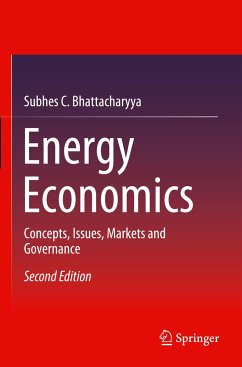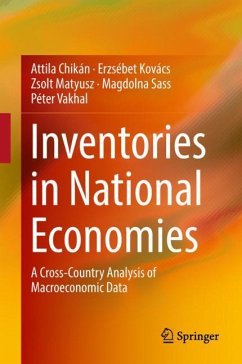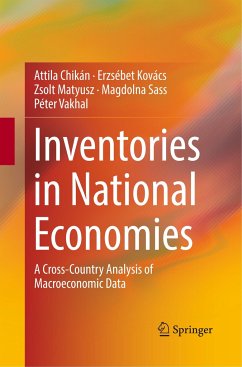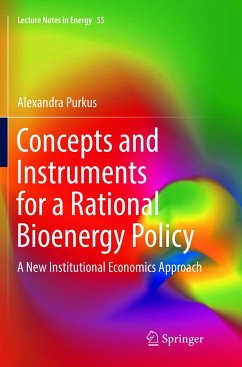
Pricing and Forecasting Carbon Markets
Models and Empirical Analyses
Versandkostenfrei!
Versandfertig in 6-10 Tagen
68,99 €
inkl. MwSt.
Weitere Ausgaben:

PAYBACK Punkte
34 °P sammeln!
This book applies the multidisciplinary approaches of econometrics, statistics, finance and artificial intelligence for pricing and forecasting the carbon market in the context of managerial issues. It explores the related issues of pricing and forecasting the carbon market using theoretical models and empirical analyses, demonstrating how the carbon market, as a policy-based artificial market, is complex and influenced by both the market mechanisms and the external heterogeneous environments.By integrating the features of analytical systems, it offers insights to further our scientific unders...
This book applies the multidisciplinary approaches of econometrics, statistics, finance and artificial intelligence for pricing and forecasting the carbon market in the context of managerial issues. It explores the related issues of pricing and forecasting the carbon market using theoretical models and empirical analyses, demonstrating how the carbon market, as a policy-based artificial market, is complex and influenced by both the market mechanisms and the external heterogeneous environments.
By integrating the features of analytical systems, it offers insights to further our scientific understanding of the pricing mechanism and the variable laws governing the carbon market. Moreover, it lays a foundation for dealing with climate change in China and constructing a national carbon market there. Ultimately, it actively contributes to the energy saving and CO2 emission reduction promoted by the carbon market.
The carbon market, represented by the European Union Emissions Trading System (EU ETS), is a cost-effective measure for tackling climate change. Furthermore, pricing and forecasting carbon market has been one of the research focuses in the fields of energy and climate change. As a policy tool of the trading mechanism, the carbon market offers a great institutional innovation for coping with climate change. Due to its multiple advantages including saving costs and environment protection, and political feasibility, more and more countries including China have applied the carbon market for carbon dioxide (CO2) emission reduction. Accurately understanding the pricing mechanism and mastering the fluctuating law of carbon market is essential to build a national carbon market for China.
By integrating the features of analytical systems, it offers insights to further our scientific understanding of the pricing mechanism and the variable laws governing the carbon market. Moreover, it lays a foundation for dealing with climate change in China and constructing a national carbon market there. Ultimately, it actively contributes to the energy saving and CO2 emission reduction promoted by the carbon market.
The carbon market, represented by the European Union Emissions Trading System (EU ETS), is a cost-effective measure for tackling climate change. Furthermore, pricing and forecasting carbon market has been one of the research focuses in the fields of energy and climate change. As a policy tool of the trading mechanism, the carbon market offers a great institutional innovation for coping with climate change. Due to its multiple advantages including saving costs and environment protection, and political feasibility, more and more countries including China have applied the carbon market for carbon dioxide (CO2) emission reduction. Accurately understanding the pricing mechanism and mastering the fluctuating law of carbon market is essential to build a national carbon market for China.












